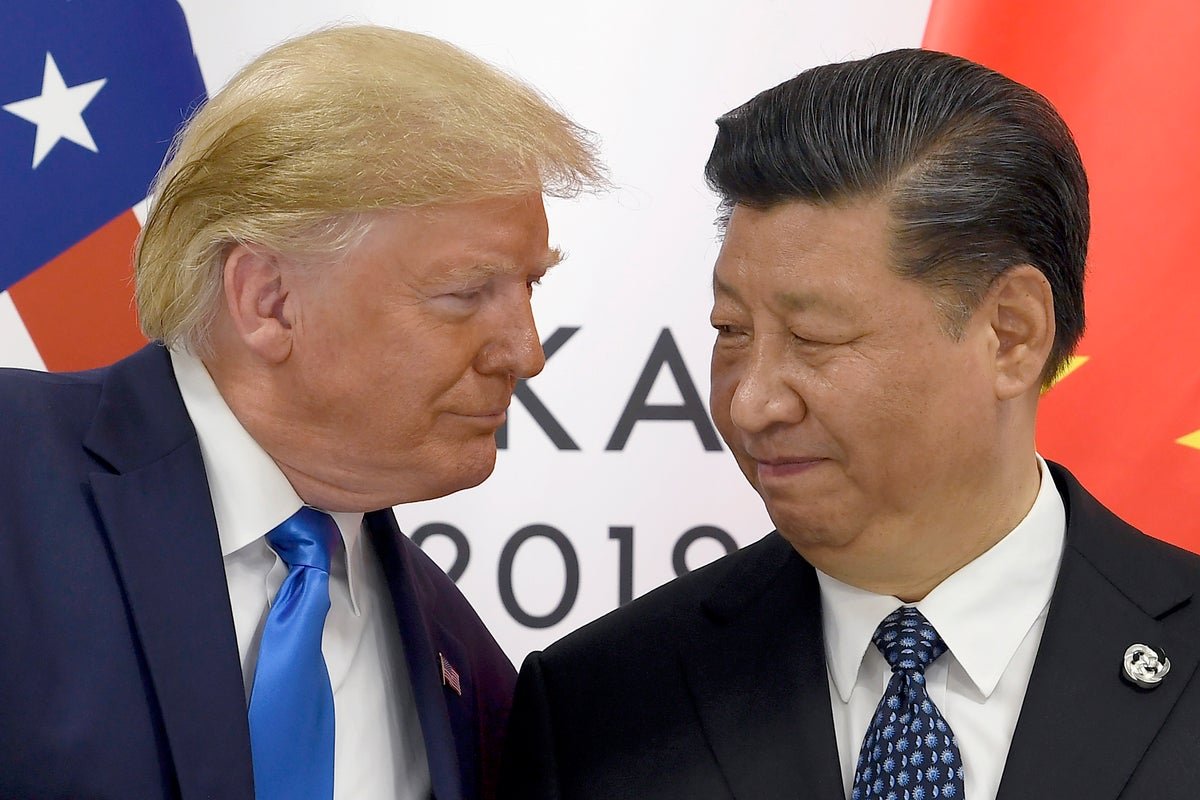© THE INTERCEPT
ALL RIGHTS RESERVED
Trump is leaving Ukraine with impossible choices: fight a losing war without U.S. support, or submit to economic vassalage.
As part of his proposed peace plan in Eastern Europe, President Donald Trump is demanding the full-scale economic colonization of Ukraine.
The terms of Trump’s initial proposal, detailed in a leaked document obtained by The Telegraph, call for U.S. control of Ukraine’s natural resources, ports, and infrastructure, including $500 billion of Ukraine’s mineral wealth as “payback” for the military aid. After years of military aid, Trump has decided now is the time to cash in.
Trump’s proposal asks Ukraine for exclusive rights “in perpetuity” over its natural resources and infrastructure. “This agreement shall be governed by New York law, without regard to conflict of laws principles,” the contract specifies. And revenues would have to be paid to the U.S. before any other party. “That clause means ‘pay us first, and then feed your children,’” a source close to the negotiations told The Telegraph.
Trump’s staggering claim to Ukraine’s mineral wealth is not new. Ukrainian President Volodymyr Zelenskyy himself proposed giving up Ukraine’s natural resources to secure Western aid. And, in Washington, Sen. Lindsey Graham, R-S.C., previously floated the idea. “They’re sitting on trillion dollars of minerals that could be good for our economy,” Graham said, standing beside Zelenskyy during a visit to Ukraine last year. “So I want to keep helping our friends in Ukraine.”
The $500 billion figure equates to nearly three times the size of Ukraine’s gross domestic product. And, as observers have pointed out, the extent of Ukraine’s mineral wealth may be overstated. Still, it’s undeniable that Trump aims to use the tragedy of the Ukraine war to fatten the coffers of America’s military-industrial complex and capitalist classes.
It’s what he does everywhere. The news of Trump’s initial Ukraine proposal follows closely on the heels of his extreme bid to forcibly expel Palestinians from Gaza to turn it into the “Riviera of the Middle East,” a plot that could potentially be used to enrich the real estate developer’s friends.
As with Palestinians in Gaza, Trump’s vision for enriching his friends in the American ruling class will come at the expense of Ukrainians. And, as in Gaza, Ukraine has no good options, and any deal it accepts with Russia or the U.S. will include painful concessions.
It didn’t have to be this way.
There were several points at which a negotiated end to the conflict could have been reached. In the fall of 2022, when Ukraine had more leverage, a group of congressional progressives urged the Biden administration to pair support for Ukraine’s successes with a “proactive diplomatic push” to seek a ceasefire.
The lawmakers, and the pro-diplomacy camp in general, were relentlessly attacked and smeared for taking the position. Hawks and the so-called pro-Ukrainian side accused anyone who called for a diplomatic path of not caring about Ukrainian lives or sovereignty. They cheered on aggressive military assistance, arguing that even the meekest calls for negotiations were a gift to Russian President Vladimir Putin.
The reality is that Ukraine’s war effort was never as stable as its Western supporters claimed.
From the start, American lawmakers repeated the mantra that they would support Ukraine “for as long as it takes.” This was a deeply misleading promise. Wars are expensive, and America’s ability to finance them is determined by economic conditions, domestic politics, and shifting public sentiment. The political will to continue the war indefinitely was never sustainable, yet Ukrainian soldiers were sent into battle under the illusion that the U.S. would remain unwavering in its commitment.
Original reporting. Fearless journalism. Delivered to you. Will you take the next step to support our independent journalism by becoming a member of The Intercept?
By signing up, I agree to receive emails from The Intercept and to the Privacy Policy and Terms of Use.
The Biden administration’s Ukraine policy reflects a similar, if less explicit, mindset to Trump’s. Before Putin waged this war, there were offramps. A senior Biden official admitted the U.S. made no effort to negotiate on one of Putin’s top concerns before his invasion — Ukraine’s potential inclusion in NATO. When Kyiv and Moscow engaged in direct talks during the early weeks of the conflict, the U.S. and U.K. governments worked to undermine the negotiations, according to multiple reports.
The Biden administration also pressured Ukraine to lower its draft age from 25 to 18 to increase troop numbers and to deal “more aggressively” with the issue of having tens of thousands of soldiers who do not want to fight. Trump allies like Graham and national security adviser Mike Waltz have also pushed Ukraine to lower its draft age — calls that Zelensky has rejected and are politically unpopular among Ukrainians.
Policymakers in Washington never seriously reckoned with the immense human, economic, and social toll of the Ukraine war because they never had to. For them, it has always been a distant conflict, a tool to weaken Russia while positioning American interests in the region.
Trump’s demand for “payback” from Ukraine — treating the bloodiest conflict in Europe since World War II as if it’s some unappreciated favor — presents U.S. foreign policy in its most naked form.
As a result of the West’s refusal to seriously consider diplomacy, Ukraine is left with impossible choices: fight a losing war without U.S. support, or submit to economic vassalage under the very powers that prolonged its suffering.
WAIT! BEFORE YOU GO on about your day, ask yourself: How likely is it that the story you just read would have been produced by a different news outlet if The Intercept hadn’t done it?
Consider what the world of media would look like without The Intercept. Who would hold party elites accountable to the values they proclaim to have? How many covert wars, miscarriages of justice, and dystopian technologies would remain hidden if our reporters weren’t on the beat?
The kind of reporting we do is essential to democracy, but it is not easy, cheap, or profitable. The Intercept is an independent nonprofit news outlet. We don’t have ads, so we depend on our members to help us hold the powerful to account. Joining is simple and doesn’t need to cost a lot: You can become a sustaining member for as little as $3 or $5 a month. That’s all it takes to support the journalism you rely on.
Voices
Greg Grandin
By shipping immigrants to Nayib Bukele’s megaprison in El Salvador, Trump is using a far-right ally for his own ends.
Matt Sledge
Instead of tackling crashing markets, Congress is pushing a crypto sector that the Trump family is financially involved in.
Voices
James Risen
Paranoid about losing their majority status and the power it confers, white Americans keep backing Trump’s racist anti-immigrant policies.
© The Intercept. All rights reserved
This is not a paywall.
By signing up, I agree to receive emails from The Intercept and to the Privacy Policy and Terms of Use.



